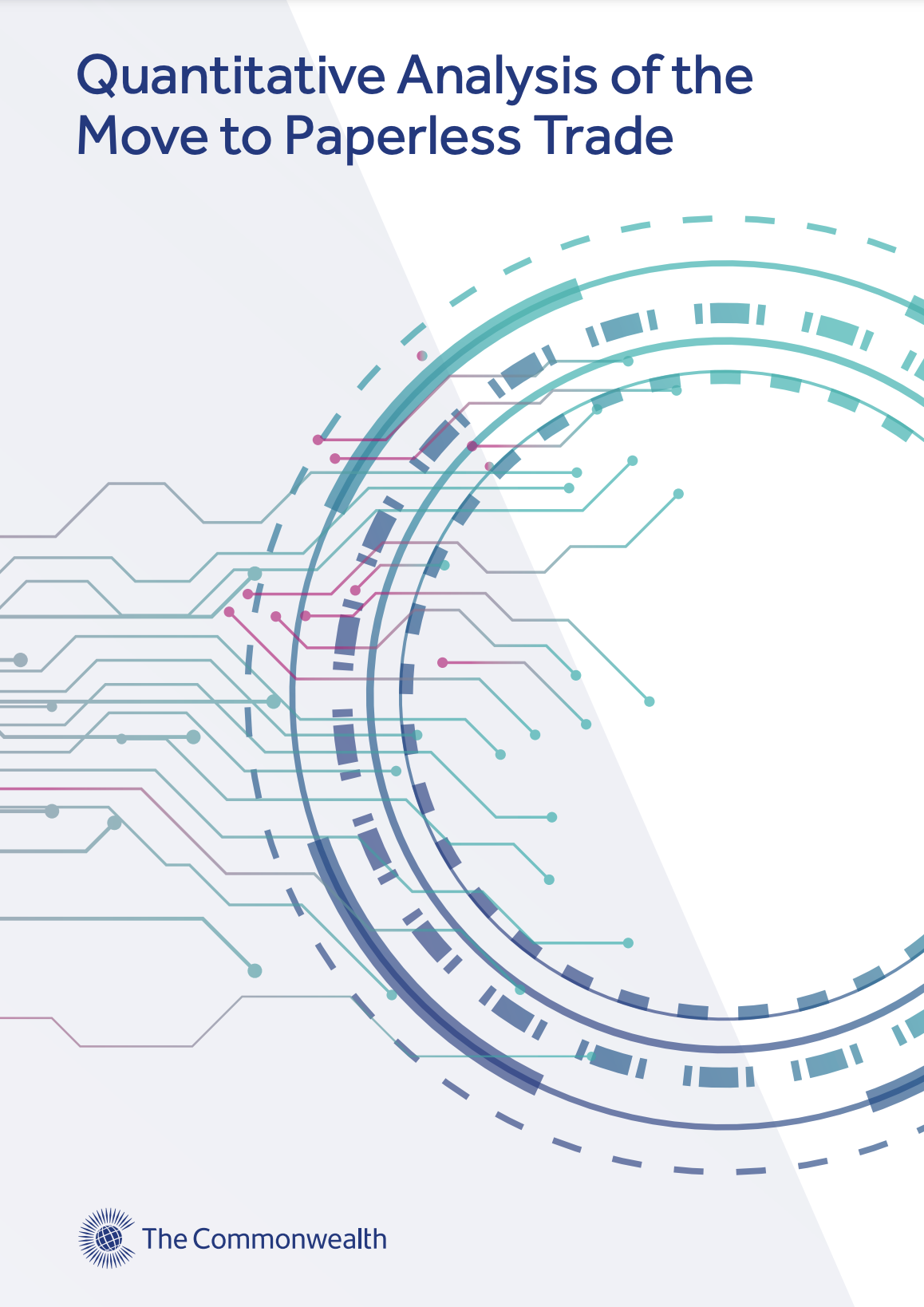The B2B Cluster is currently developing the business case for paperless trade and private sector exchanges to enable digital trade across the Commonwealth.
This includes the following initiatives:
Facilitating the transition to paperless trade across the Commonwealth and establishing a Commonwealth Working Group on Legal Reform and Digitalisation:
- Making the business case and quantifying gains of up to US$1.2 trillion to Commonwealth economies by moving from paper-based to paperless trade
- Commonwealth Trade Ministers establish Working Group on Legal Reform and Digitalisation
- Working Group on Legal Reform and Digitalisation launched in Fiji
Supporting Commonwealth policymakers and private sector organisations through capacity building for advanced manufacturing:

In 2022 we released the report Quantitative Analysis of the Move to Paperless Trade, which attempts to quantify the potential impact of legal reform to enable the use of the so-called “transferable records” on Commonwealth trade.
There are clear economic and political imperatives to accelerating digital trade facilitation and legal reform for digitalisation, with potential total benefits of nearly US$1.2 trillion to Commonwealth trade by 2026.
Our new research covers 54 diverse Commonwealth economies and presents a picture of the potential for cost reductions and trade increases as a result of the introduction of legal reform, to enable the use of electronic transferable records across the Commonwealth.
Working Group on Legal Reform and Digitalisation
The Working Group on Legal Reform and Digitalisation supports Commonwealth member countries in advancing legal reforms necessary for the transition to paperless trade.
By addressing regulatory barriers and promoting harmonised digital trade frameworks, the Working Group enhances the efficiency, transparency, and sustainability of intra-Commonwealth trade.
This initiative is aligned with the Commonwealth Connectivity Agenda’s B2B Cluster, with input from the Digital and Regulatory Clusters to ensure cross-cutting coordination. The Working Group reports to Commonwealth Trade Ministers and Senior Trade Officials.
The Working Group’s work is delivered through three key channels:
Convening
- Hosting multi-stakeholder dialogues with policymakers, legal experts, and industry representatives to support legal reform for digital trade.
- Engaging with global and regional institutions to align Commonwealth efforts with international best practices (e.g., UNCITRAL Model Law on Electronic Transferable Records).
Equipping
- Developing a Commonwealth Model Legislative Law on Digital Trade, providing a legal framework to support paperless trade adoption.
- Producing Legal Reform Roadmaps and Implementation Guidelines for countries undertaking legislative changes.
- Curating case studies, policy toolkits and training materials to enhance legal and regulatory capacity.
Advising
- Supporting national and regional authorities in drafting and implementing digital trade laws.
- Providing legal and technical expertise through a dedicated Legal Consultative Taskforce to guide policymakers on regulatory best practices.
- Piloting regional implementation initiatives to transition legal frameworks from paper-based to digital trade environments.
Through these efforts, the Legal Reform and Digitalisation Working Group fosters a coherent, secure, and enabling regulatory environment for Commonwealth economies to fully participate in the global digital trade landscape.
Quick facts
Commonwealth bilateral trade
Global leaders for doing business



